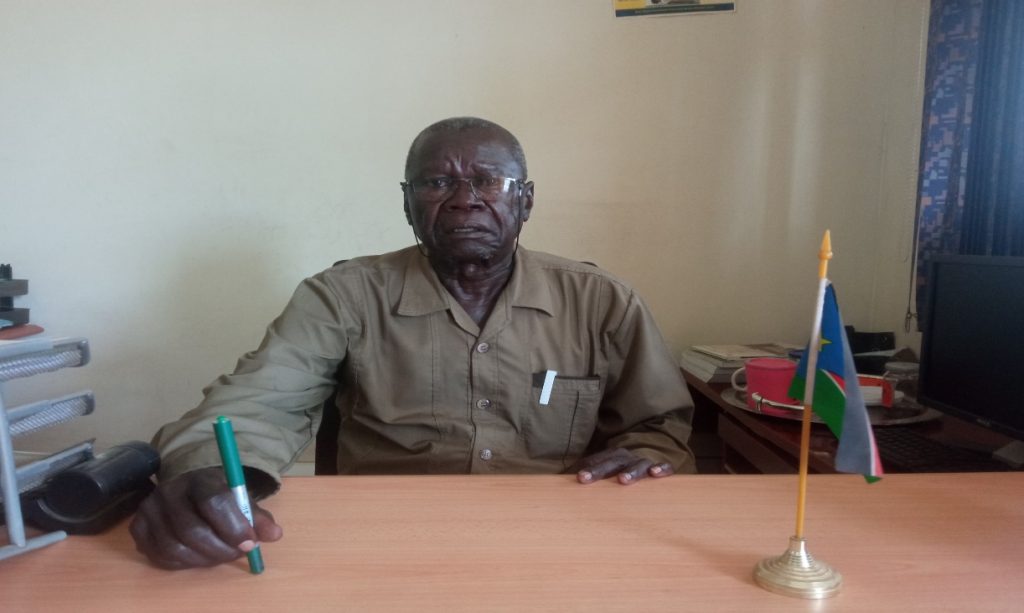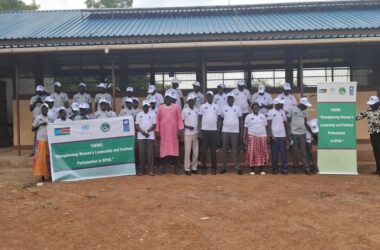
By Ephraim Modi D.S
The Director General for Food Security Policy at the National Ministry of Agriculture and Food Security Jacob Mogga Bandazi has raised a concern of a 10 percent allocation of the country’s national annual budget to agricultural sector.
The World Food Program (WFP) on 14th June announced ‘suspension of food assistance to starving South Sudanese population’ with declaration of over 60 percent of the population in the country to grapples with severe hunger during the lean season, fueled with conflict, flooding, localized drought, and soaring food prices exacerbated by the crisis in Ukraine.
Speaking to No.1 Citizen Daily Newspaper in an exclusive interview on Tuesday; Bandazi, the Director of Food Security Policy stressed the need to have the national budget allocation for the agricultural sector increased to 10 percent as per the 2014 Malabo Declaration of African Heads of State and Governments to curb starvation in the States.
“As a Ministry, a number of things would be done, more so is our realization that there’s need for a required budget allocation to the Ministry of Agriculture and Food Security which has been agreed by various African government at the Malabo agreement which require a minimum of 10 percent of the country’s budget should (to) go to agriculture,” said Bandazi.
“At the moment, we are not getting anything more than 1 percent, the budget allocated for the ministry of agriculture has never gone over 1 percent, so our efforts even as a country to increase production and productivity to secure food security is not in place.” Bandazi underlined.
He said the statement from WFP to cut food assistance is a wake-up call to the Ministry and government at large in absence of sufficient support from WFP, to figure out as a nation and as a ministry which is mandated to supervise production and productivity of food at all levels.
He further said it is on the basis that the funds which WFP requires to meet their various humanitarian services to people in need was not been met arising to the fact that there are millions people who are displaced as a results of several problems which would be manmade, or natural calamities.
“There are also research activities that need to be done so that we can establish the appropriate ways for technical production of food which can be passed to the producers through the improvement of extension services to be given subsequently to the farmers to enable them produce enough food,” Bandazi noted.
The Director General for Food Security Policy also factored out level of set-ups of the roads and research centers that require facelift which has limit food supply to various areas in the country.
“Lack of infrastructure and above all some level of insecurity in other production areas are the ones contributing, and to have scientific production as estimated earlier, there are revitalization of the research centers within the country which are not been renovated and there is lack of researchers in this sector,” he said.
“We have enough resources including fertile soil which when we really get to full security and peace is established, we should be able to produce since we have the means, we have the power, young and old people who are able to produce,” he underscored.
Bandazi emphasized that they don’t have to wait for food from outside, they should be able to also try to produce their own and they should be able to also export food as well and this is within government’s anticipation of introducing mechanize farming”.
Apart from playing a role in ensuring food and nutrition security, agriculture provides critical support to other sectors such as manufacturing through provision of raw materials.
However, the sector is facing various constraints such as adverse weather conditions, insect and crop diseases, slow implementation of flagship projects to support irrigation, and slow progress in promoting value addition.
On May 25 this year, the Vice President for Gender and Youth Cluster, Rebecca Nyandeng expressed worries about the situation in the country, and warned South Sudanese on looming severe hunger amid effects of natural and manmade disasters.
For the last five financial years, the agricultural sector of South Sudan has severely been neglected despite the huge agricultural potential the country has.


